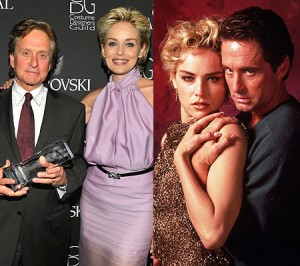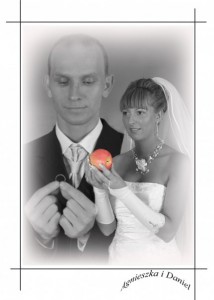Paul Verhoeven, WTF?!
According to Verhoeven in various interviews and Blonde Poison: the Making of Basic Instinct, he set out to make a true modern noir film because he wanted to pay homage to Vertigo and other classics of American noir cinema, and he has no feelings of homophobia or misogyny. In particular, Verhoeven vehemently denies any homophobia, explaining that since people are open about sexuality of all kinds in the Netherlands (his birth country) there is no way he could have meant it that way.4 I believe that he believes this, and I also think it’s partly true.
But let’s just get it out there that being open about sex does not mean that you are even remotely okay with women, vaginas, lesbians, or any of the Venn diagrams that could be made involving these three nouns.
What’s more interesting to me in this discussion is that whether or not Verhoeven is okay with women, their body parts, and their sex lives, one reason Hollywood ate up Basic Instinct (and it grossed $352,700,000 in theaters worldwide) was that it played on cultural fears of the time so deftly. Fears of homosexuality becoming part of the main stream, of sexually confident women and the “mistakes” they “make” men make, and of certain darker impulses – male or female – towards fantasies that involve domination or outright violence towards women.
While the ending isn’t completely conclusive, it’s pretty clear that Catherine and Beth both have a thing for killing the men one or both of them slept with. And making both the main suspect and the red herring really twisted, batty women who seem to have no motive except being really twisted and batty is a great choice, because now when Nick does violent and dominant things to these women, it’s not because he’s a hateful misogynist homophobe, silly-head! It’s because he’s a vigilante cop trying to bring Justice into the picture in his own offbeat way.

It’s also suggested throughout the movie that Nick likes to self-medicate with really freaky and dangerous behavior to mitigate the psychological fallout of a past coke addiction, a possible sex addiction, and maybe some alcoholism. Basically, the guy is a mess, so what’s a little date rape between cop and co-worker, or a steamy, crime-replicating romp with the main suspect? Arguably the whole point is that he’s a mess, and for his character to be convincing he has to be written in ways that are unattractive as well as intriguing.
Americans and Sex, WTF?!
And then there’s this whole issue of, how do you say, Americanosity?
You know how they fatten Geese to make foie gras? By shoving funnels down their throats and force-feeding them until their livers become fatty. Basic Instinct fattens its audiences in the same way, by force-feeding the basic ingredients of these significant cultural anxieties to create a rich, or perhaps just richly fraught, end product. Like foie gras (yeah, I’m really into this simile, so we’re going to see it through here), that product is something both decadent and kind of repulsive. And pretty sadistic all around.
But I’m not at all convinced that was Verhoeven’s goal, or that his alternate cultural context even makes it possible for this to mean what it would if it had been the product of a born-and-raised American. Verhoeven self-identifies as a European, sex-positive movie fanatic, and while I’ve covered the fact that sex-positive and sexually healthy are not necessarily synonymous, a nod must be given to the idea of non-translatable cultural concerns.
Sure, creating a movie where lesbians and bi-curious women go around killing men, this killing is linked both temporally and conceptually to their having slept with said men, and men are just awful in their treatment of women, reflects some really twisted values and ideas about gender, sex, and sexuality.

The American Idea of Sexuality (Part 1)
But so, too, were/are Americans’ ideas about gender, sex, and sexuality. Let’s review for a second: In the United States in 1992, Ellen would not come out for another five years, HIV/AIDS was still largely considered a “gay thing” and a deadly rather than chronic illness in the industrialized world, and women in visible leadership positions were required by organizational policy to wear skirts and heels, shave their legs and armpits, and generally had their bodies micromanaged in the workplace in ways that were never required of men (hell, in some finance offices this is still the case). This was less than 20 years ago.

The American Idea of Sexuality (Part 2)
Like it or not, the Hollywood film industry survives because it makes money from mainstream American moviegoers. And no mainstream American moviegoers at that time would shell out to see a non-straight protagonist who wasn’t at once wholly consumed by his/her sexual orientation and hyper-sexualized in straight-friendly ways. It just wasn’t gonna happen.

I remember reading somewhere that the outfits Sharon Stone wears in Basic Instinct are the same ones – in order – that Kim Novak wears in Vertigo. There’s probably a halfway decent film studies paper waiting to be written about Vertigo’s sleazy afterlife in films like Basic Instinct and Body Double.
And hey, that brings up an interesting question. You imply that you would be a lot more critical of Verhoeven’s attitude towards sexuality and violence if he was American. What’s your read on Brian De Palma?
Woo feminism! I’m really glad that “Verhoeven Week” has turned out to be “Verhoeven is a Misogynist Week.” Needs to be more feminist philosophy on this site.
Needs to be fewer sweeping, unsupported generalities on this site. Especially from our own writers.
Also: Really interesting post, Diana. I’m glad you’re back writing guest articles! Keep it up!
Stokes, I would love to see that Kim Novak thing verified, though I’m not sure I have it in me to 1) put myself through Basic Instinct again so soon and 2) do so with a special eye for Sharon Stone’s personal appearance.
On Brian De Palma I have less to say, mostly because I’m really only familiar with Carrie, Scarface, and the Untouchables — I’ve seen others in pieces or long ago, but my experience is probably too limited to make credible points on the whole of his work. On the issue of being American or not, in many cases where two cultures differ in their approach to sexuality, each culture’s way of doing things can seem pretty nonsensical to the other, sometimes to the point that the other way doesn’t even occur as an alternative. If I had to guess, I’d say that for Verhoeven it probably breaks down to about 1/3 serious issues with women that just kinda creep into his work, 1/3 childlike wonder/total obsession with the very process of making movies to the point that he’s kinda blind to issues that would seem huge to others, and 1/3 intentional satire/criticism that plays straight to most American audiences, including Hollywood decision-makers, but not so much in Europe.
Wrather, thanks, it was a lot of fun to write!
It was such a stupid film. A simple DNA test would have proven that Catherine was the murderer.